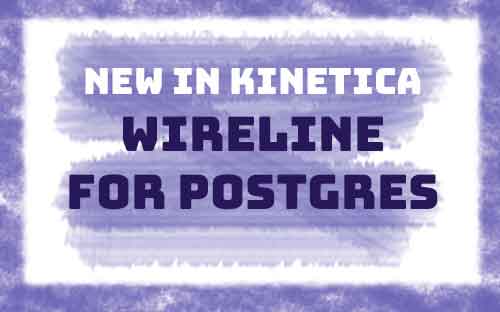Kinetica, the database for time and space, has added support for PostgreSQL wireline in its 7.1.6 edition. This is a huge step forward for developers who are looking to quickly and painlessly migrate from Postgres to Kinetica.
A large ecosystem of tools and libraries exist today to support Postgres. By adding the Postgres wireline protocol, our users can now seamlessly connect to Kinetica, This helps users avoid the hassle of setting up and troubleshooting JDBC connectionsand opens-up a large selection of tools in Database Administration, ETL, and Visualization that formerly required a tedious setup or that were simply unavailable.
Developers who use an Object-Relational Mapping (ORM) tool with Postgres can now migrate to Kinetica without changing any additional logic in their applications. This allows developers to capitalize on the massive scalability of Kinetica without sacrificing development cycles to migrate the application. After migrating the database from Postgres to Kinetica, developers can point their ORM in their application layer from Postgres to Kinetica, and they will see a huge performance boost in their backend analytic operations.
To connect to Kinetica’s wireline protocol, simply use Kinetica’s host address and user name/password to initialize the connection. As an example below, let’s see how the Python library Psycopg connects over PostgreSQL Wire Protocol to Kinetica.
Connect
>>> import psycopg2
>>> conn = psycopg2.connect
(host="", user="", password="", dbname="ki_home")
>>> cur = conn.cursor()
>>> cur.execute("SELECT * FROM example.vehicle")
>>> cur.fetchall()
>>> [('1', 'Cord', '812'), ('2', 'Bugatti', 'La Voiture Noire')]
Easy, right? With just a few simple parameters, you can connect your favorite tools like DBeaver, Grafana, and Pgweb to Kinetica.
To lean more or try out about Kinetica visit https://www.kinetica.com/learn/

